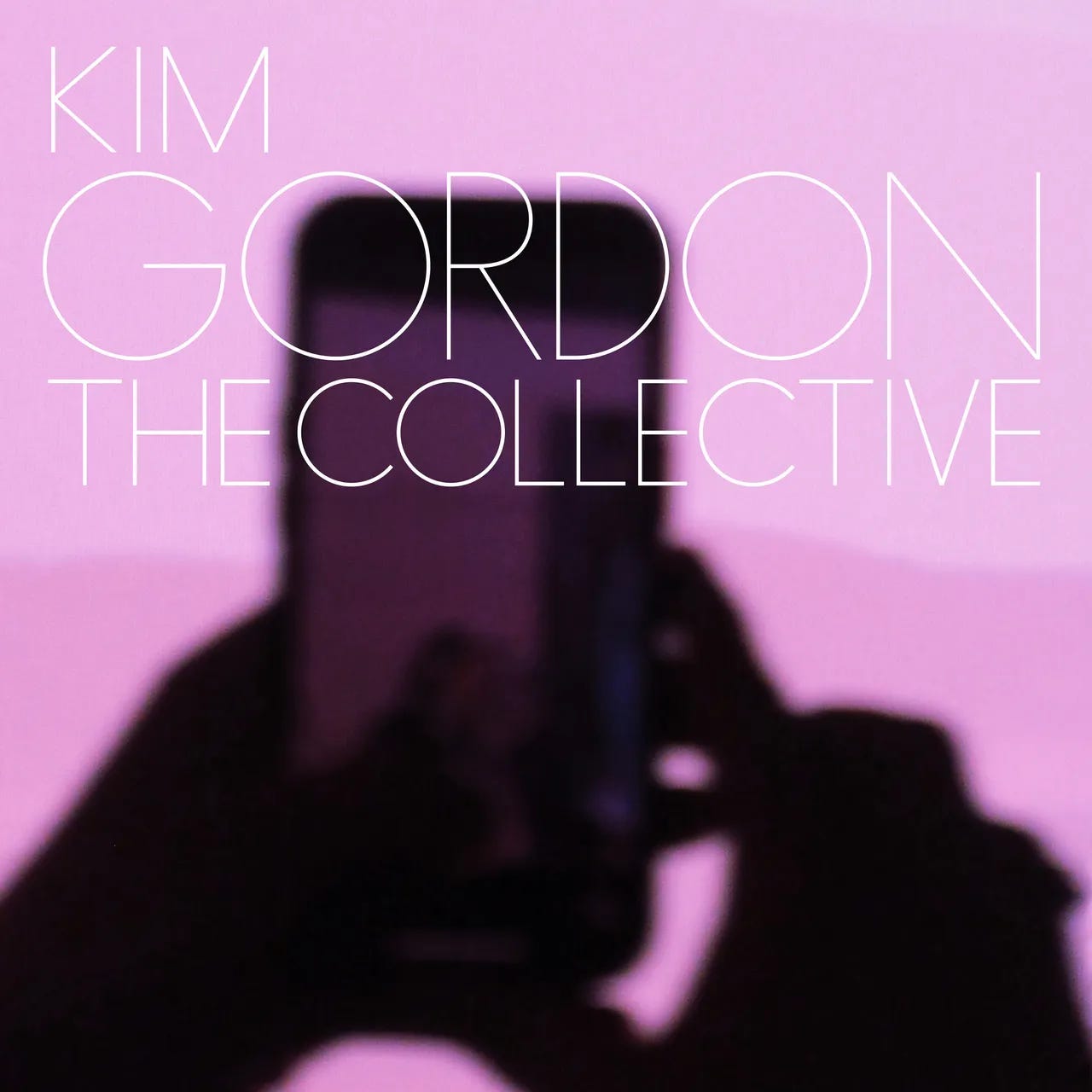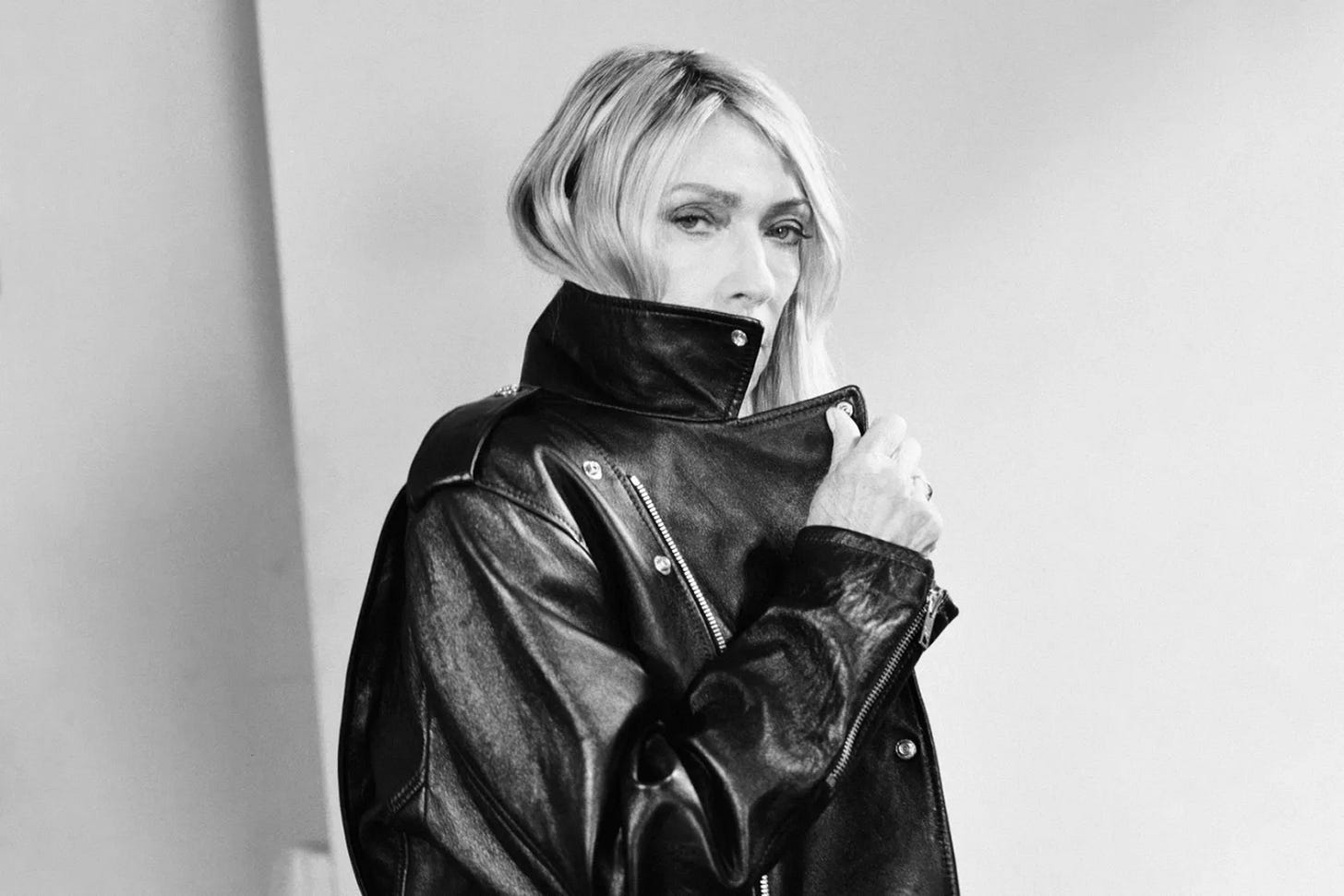I usually publish the newsletter on Fridays, a tradition I very much enjoy adhering to, but the fact that I haven’t been feeling myself lately has led me to struggle with my writing (as well as my everything else). Still, I didn’t feel like pushing this piece back an entire week, which is why it finds you on this blessed Saturday. I hope you’ll forgive the sacrilege.
After 38 years as a musician — and about 35 years as a living legend — Kim Gordon, former bassist-singer in the alt-rock institution Sonic Youth and decades-long symbol of muy sofisticado, bohème cool, released her first studio album, 2019’s No Home Record. The LP was rooted in the more abrasive side of Gordon’s sensibilities, though that abrasion was expanded upon with digital production, courtesy of Justin Raisen, that gave the rough industrial sounds a contemporary sheen. On the whole, the record was a solid, if slightly shaky, effort that was largely carried by Gordon’s ineffable charisma, which is not a criticism as much as it is an acknowledgment of Gordon’s ability to play to her strengths.
On The Collective, her second solo album, Gordon leans further into contemporary, trap-inflected beats, and the distorted bass rumble that introduces the album makes clear what all the fuss surrounding her latest has been about. At first, “BYE BYE” sounds like it would be right at home on a Ken Carson record, its blown-out beat infected with high-pitched computer grunts and chunky guitar scratches. After about half a minute, Gordon’s familiar deadpan begins rattling off a list of chores, appointments, and things to pack before heading either on tour or on vacation. (“Cigarettes for Keller,” she sings at one point, referencing her late brother Keller Gordon, whose mental illness partly inspired Sonic Youth’s “Schizophrenia.”) Hearing her detached delivery set against this kind of brash digi-backdrop is immediately intriguing although it is hard to determine whether this is due to the track’s inherent merit or just the novelty of hearing someone born during the Eisenhower administration being so “with it.”
“BYE BYE” fizzles out as distorted guitar slowly overtakes the mix, subtly referencing Sonic Youth’s sly “Kool Thing” tease that closes out “Mary-Christ” on their 1990 album, Goo. As a matter of fact, “Kool Thing” is an appropriate song to bring up in this context, since the Gordon-led single saw her working through some complicated feelings after interviewing LL Cool J for Spin the year before — a rather obnoxious showing from both parties if what made it to print is to be believed. It’s funny to think that the cultural (and racial) differences which were so pronounced at the end of the ‘80s have melted away enough for a project like The Collective to come to fruition, although, even back in 1989, Gordon admits that “[she has] more access to his world…than [LL Cool J] will ever have to [hers],” an observation that is loaded with a racial dynamic of its own.
The LP’s second cut, “The Candy House,” continues on this — to paraphrase critic Alphonse Pierre’s words in Pitchfork — “Is this good or is Kim Gordon just really cool?” trajectory, the singer wrapping her chilly sprechgesang — and, curiously, some Carti-like pitch-shifted mumbling — around an explosive rage tune. Can mere novelty really be this compelling? Early on, the ostensible dissonance of hearing someone of Gordon’s age, race, and gender being dropped into the domain of the young, Black, and (largely) male is superficial — the first two songs feel like there is a genuine cultural symbiosis happening. “On this record, I wanted to express the absolute craziness I feel around me right now,” says Gordon in The Collective’s press release. “Everything is easy, smooth, convenient, branded. It made me want to disrupt, to follow something unknown, maybe even to fail.”
There has been no shortage of art attempting to grapple with the Current Moment (a global pandemic will do that to people, apparently) but rarely do the results feel as urgent or fearless as they do here. But urgency and fearlessness alone do not good music make and the juxtaposition the album sets up so effortlessly at first does eventually falter. While the metal scrapes and abstract lyricism (“I don’t miss my mind/Doctors and nurses, tingling eye/Bleeding inside, touch me there/That’s a modern pose”) of “I Don’t Miss My Mind” expertly round out the opening trio of songs by pulling back the hip hop influence and mutating the blog-era indie of Animal Collective and Deerhunter into something cold, sinister, and haunting, the anti-sexist would-be anthem “I’m A Man” drones with a turgid instrumental and lyrics that recall Pissed Jeans’ obnoxious, winking 2017 male feminist jam of the same name.
Gordon’s penchant for the prosaic was always a little hit or miss and her more abstract songs — “Brave Men Run (In My Family),” “Shadow of a Doubt,” and “Bone” — are the ones that sit amongst her old band’s best creations. On occasion, she would successfully juxtapose straightforward lyricism with spectral art rock (“Tunic (Song for Karen)”) or cool indie pop (“Reena”) but songs like “Swimsuit Issue” failed to tap into either punk rock’s aggression or, more specifically, the emerging riot grrrl scene’s white-hot fury (“Don’t touch my breast/I’m just working at my desk/Don’t put me to the test/I’m just doing my best”).
The Collective zigzags between these two modes and, accordingly, the results are sometimes effective and sometimes less so. “Tree House” recounts a traumatic childhood episode (“He brushed my hair/I don’t understand…I still think of that man”) over an appropriately disjointed instrumental, while the manic “It’s Dark Inside” effectively runs in place and sees her name-dropping noise punkers Pussy Galore as well as State Department favorites Pussy Riot (okay, maybe she’s not quite as “with it” as I assumed). Album closer “Dream Dollar,” meanwhile, updates Suicide’s throbbing electro-punk for the 2020s with meat-grinder guitars and evocative sloganeering (“Cement the brand…Get in the room…Dollar, dollar, dollar”).
Up until 13 years ago, Gordon had the luxury of two other vocalists who brought their own distinct vocal and lyrical approach to the artsy ruckus she loves making — Thurston Moore’s bratty, eternally-22-years-old tenor and Lee Ronaldo’s shouty beatnik poetry — but a solo outing offers her no such convenience and as a result, The Collective showcases not only her magnetism but also her limitations. However, album highlight “Shelf Warmer” also illustrates just how far she’s able to take those limitations: featuring what is probably the record’s sparsest beat, Gordon ruminates on human connection in the age of slick gizmos and tech alienation (“Just give me a light/Or a handshake/Don’t change a thing/Make it smooth and shine anew”), her voice thick with mystery, eroticism, and ennui — all three, sitting right there in her famous monotone. At her best, she still knows how to make it sound effortless.





